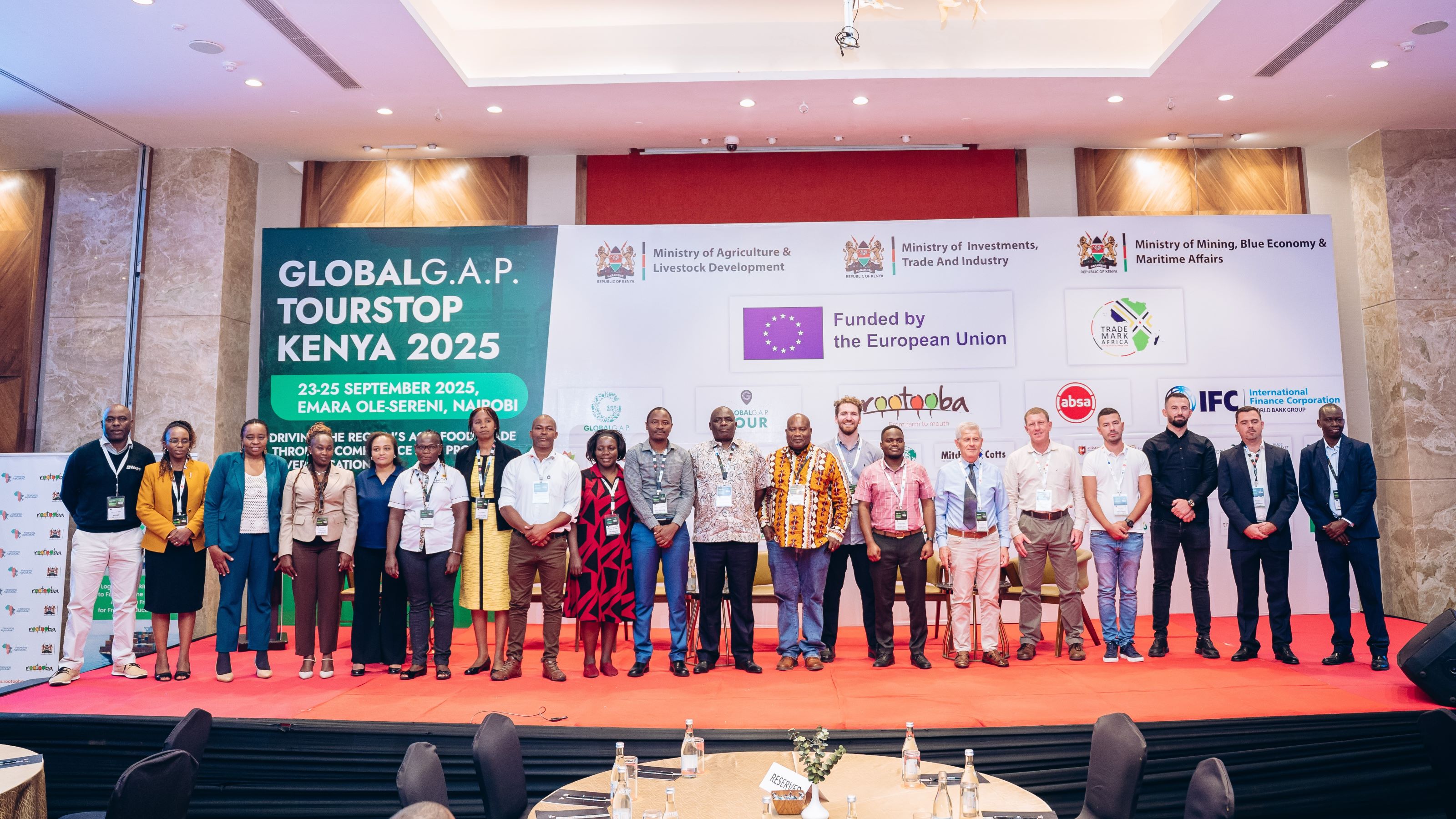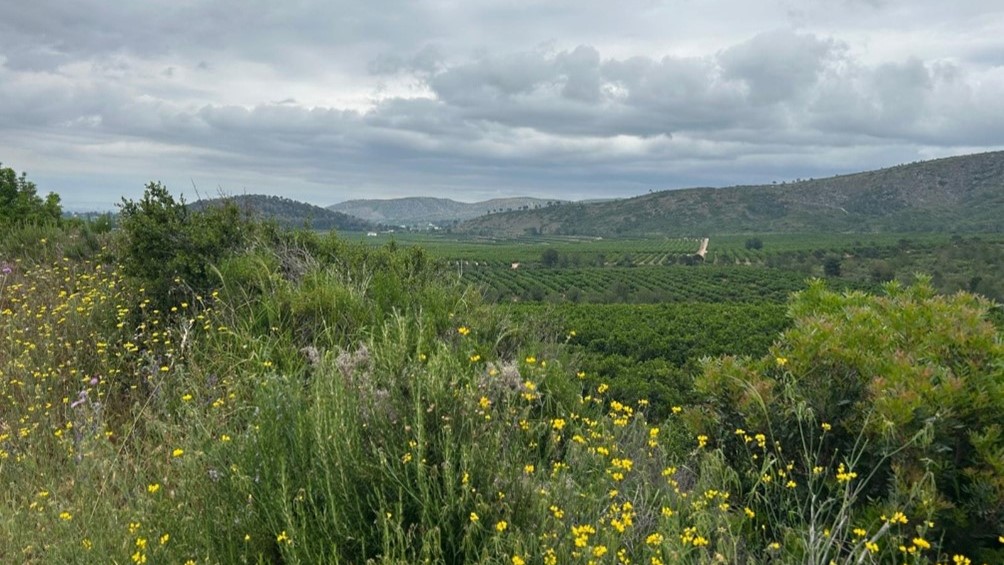25 March 2025
Understanding capacity building in the GLOBALG.A.P. system
What is capacity building and how does GLOBALG.A.P. contribute towards capacity-building measures in the farming sector? Where are GLOBALG.A.P. capacity building activities conducted and what projects are we involved in? Read on to find out.
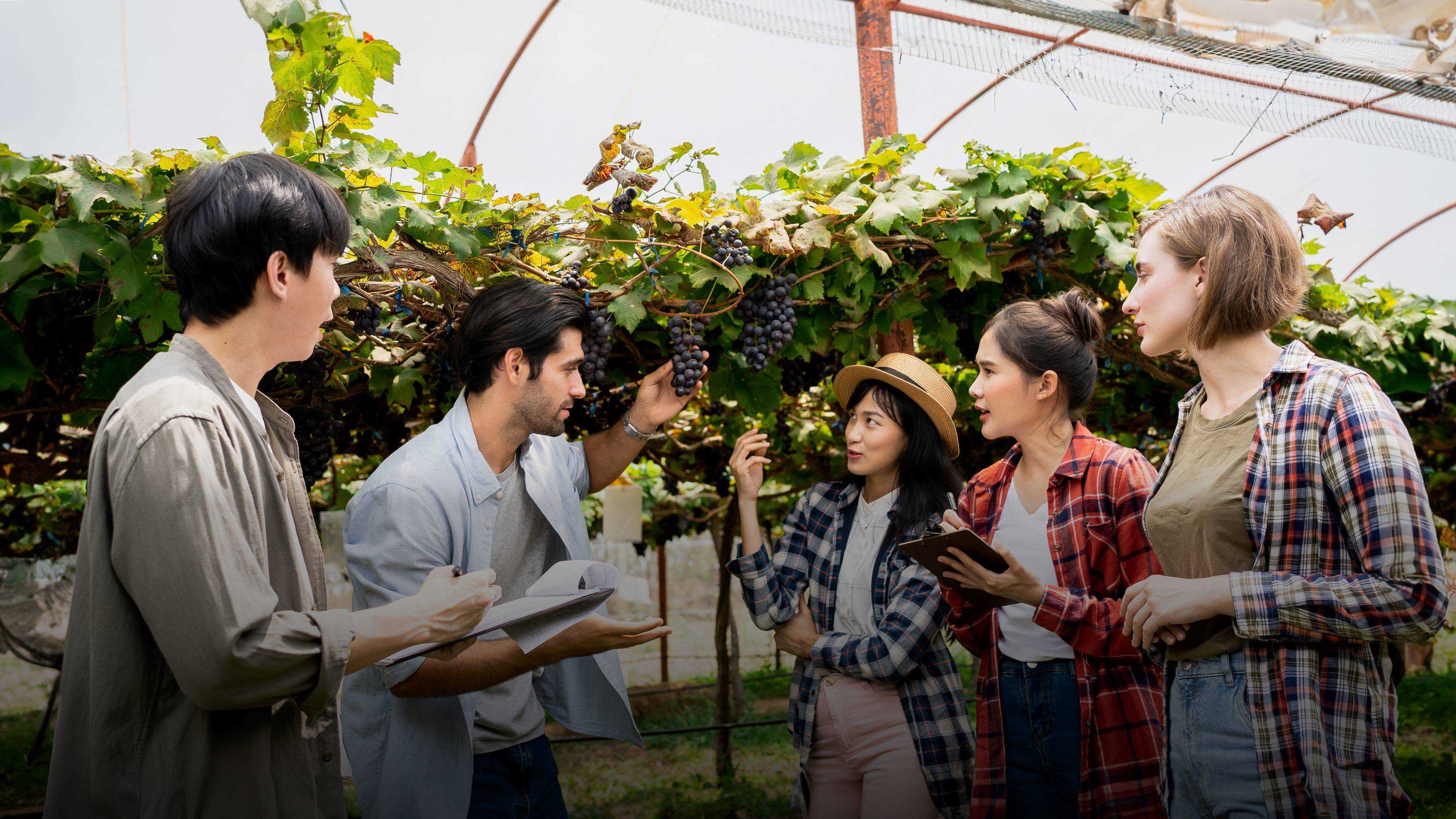
What is capacity building?
The UN defines capacity building as “the process of developing and strengthening the skills, instincts, abilities, processes and resources that organizations and communities need to survive, adapt, and thrive in a fast-changing world”.
GLOBALG.A.P. capacity building activities work on this basis to raise awareness of good agricultural practices and facilitate their implementation on the ground, impacting farming communities around the world.
Through targeted capacity building activities conducted in collaboration with our global network, we can promote food safety and contribute to safeguarding our environment and the well-being of farming communities together.
GLOBALG.A.P. capacity building principles
Adopting safer and more sustainable farming practices is only possible if producers have the tools they need to succeed – including access to training and support. GLOBALG.A.P. capacity building activities aim to contribute to the transformation of farming practices by:
Raising awareness of good agricultural practices (GAP) and collaborating with regional stakeholders
We provide information about safe and responsible farming practices and inform about the suitability of GLOBALG.A.P. solutions for a variety of farm operations.Providing training and facilitating access to certification
We run training courses for GLOBALG.A.P. solutions, offer mentorship opportunities, and support a stepwise approach to accredited standards via entry-level assurance.Establishing networks and upskilling local expertise
We connect stakeholders, establish local, regional, and international partnerships and help to upskill local expertise.
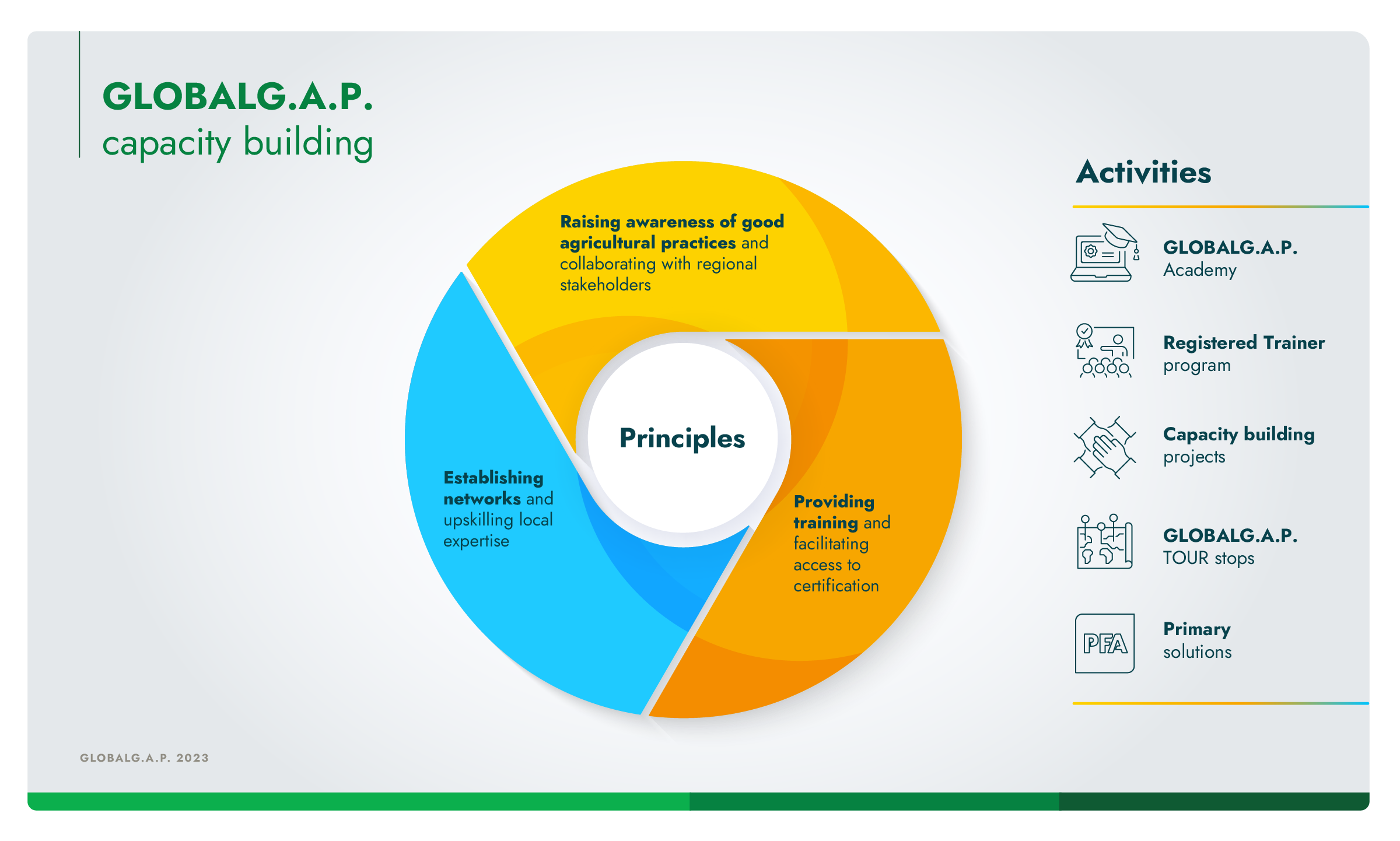
Infographic showing the principles and activities of GLOBALG.A.P. capacity building
Our core capacity building activities:
Trainings via the GLOBALG.A.P. Academy
Officially founded in 2012 after nearly 10 years of providing GLOBALG.A.P. certification body trainings, the GLOBALG.A.P. Academy offers targeted, up-to-date, and science-based courses to promote understanding of good agricultural practices. Each year we conduct over 100 public training courses for more than 1,500 participants.
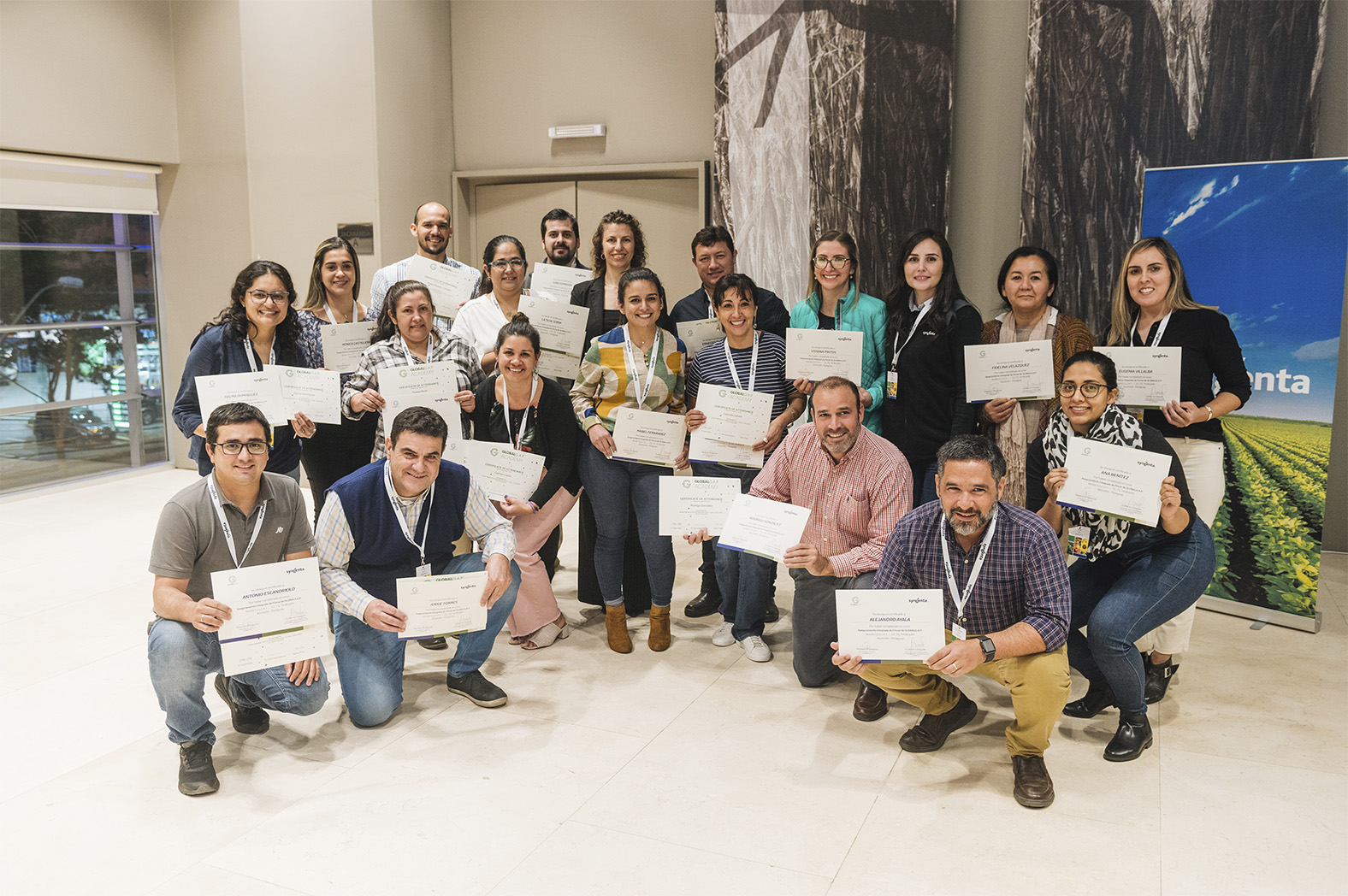
Registered Trainer Program
Registered Trainers are independent farming experts who are supported by GLOBALG.A.P. to train producers and other stakeholders on the practical implementation of our standards.
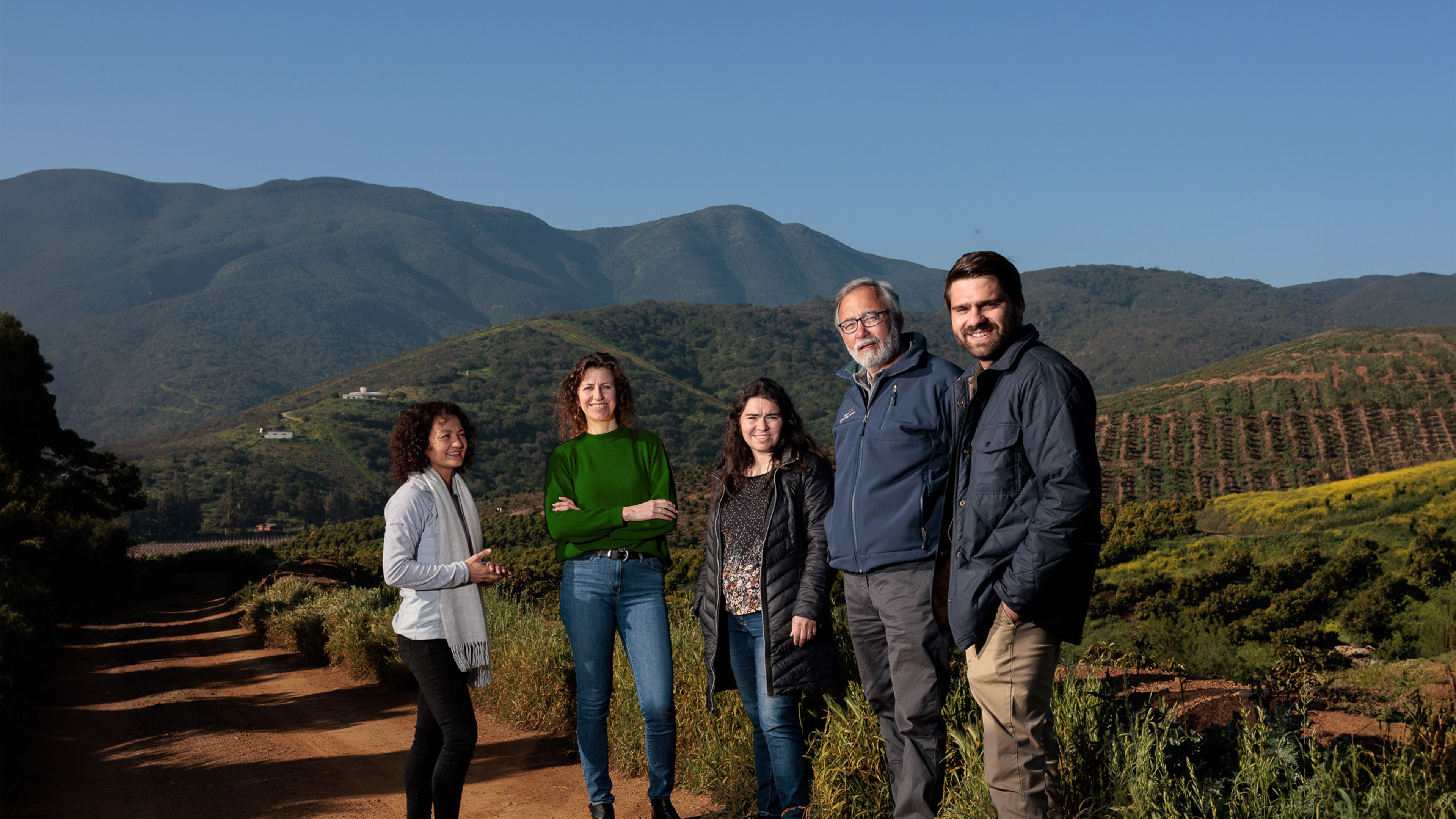
With over 250 Registered Trainers working to help others understand the GLOBALG.A.P. certification system and navigate the certification or recertification process, we can reach more people than through Academy training alone. Registered Trainers therefore play a major role in promoting safer and more sustainable farming practices around the world.
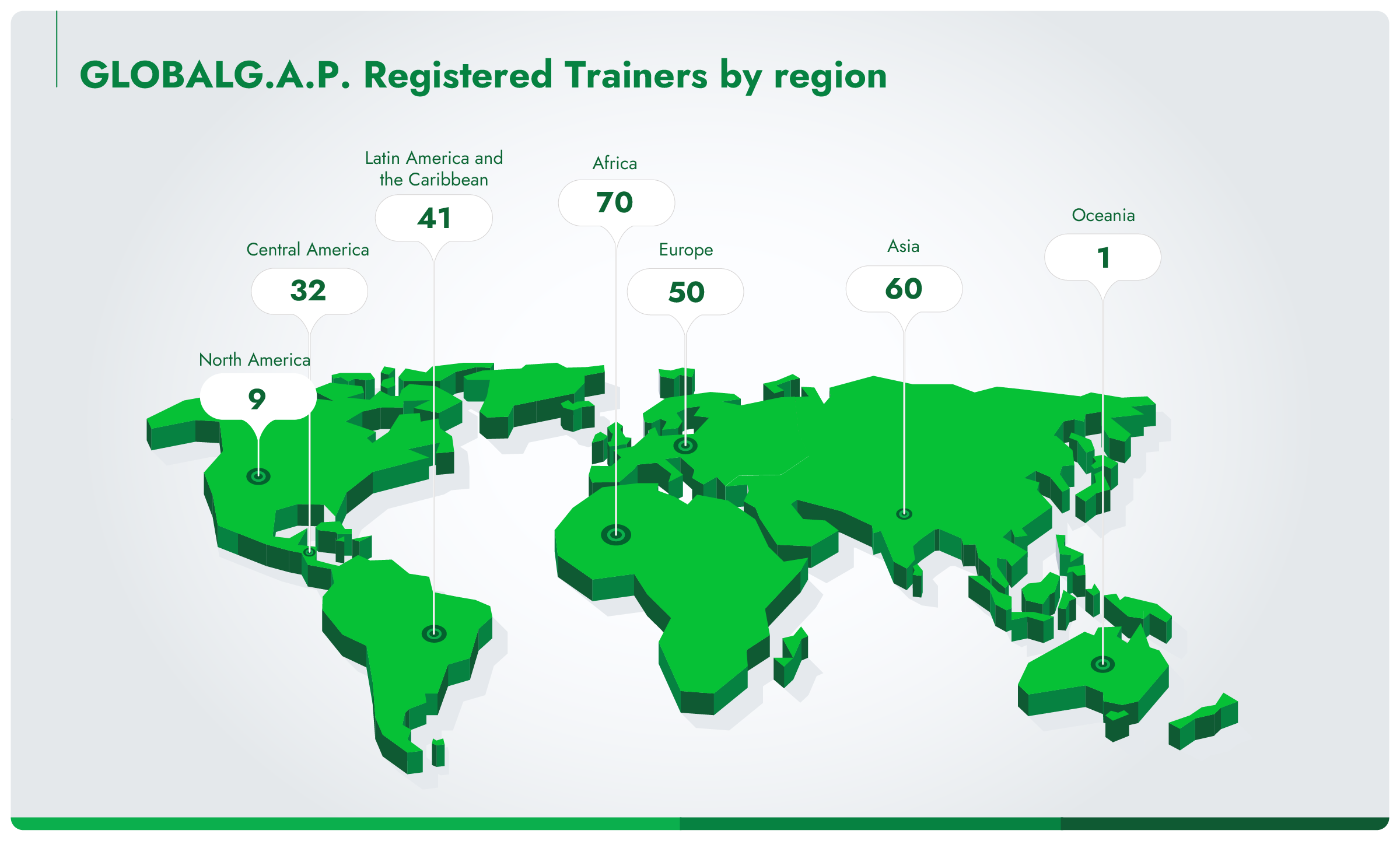
Map of active Registered Trainers by continent (as of 31/12/2022)
Capacity building projects
For more than 20 years, GLOBALG.A.P. has been partnering with organizations around the world to collaborate on projects that upscale local expertise, connect smallholders to markets through certification, and strengthen the agricultural sector.
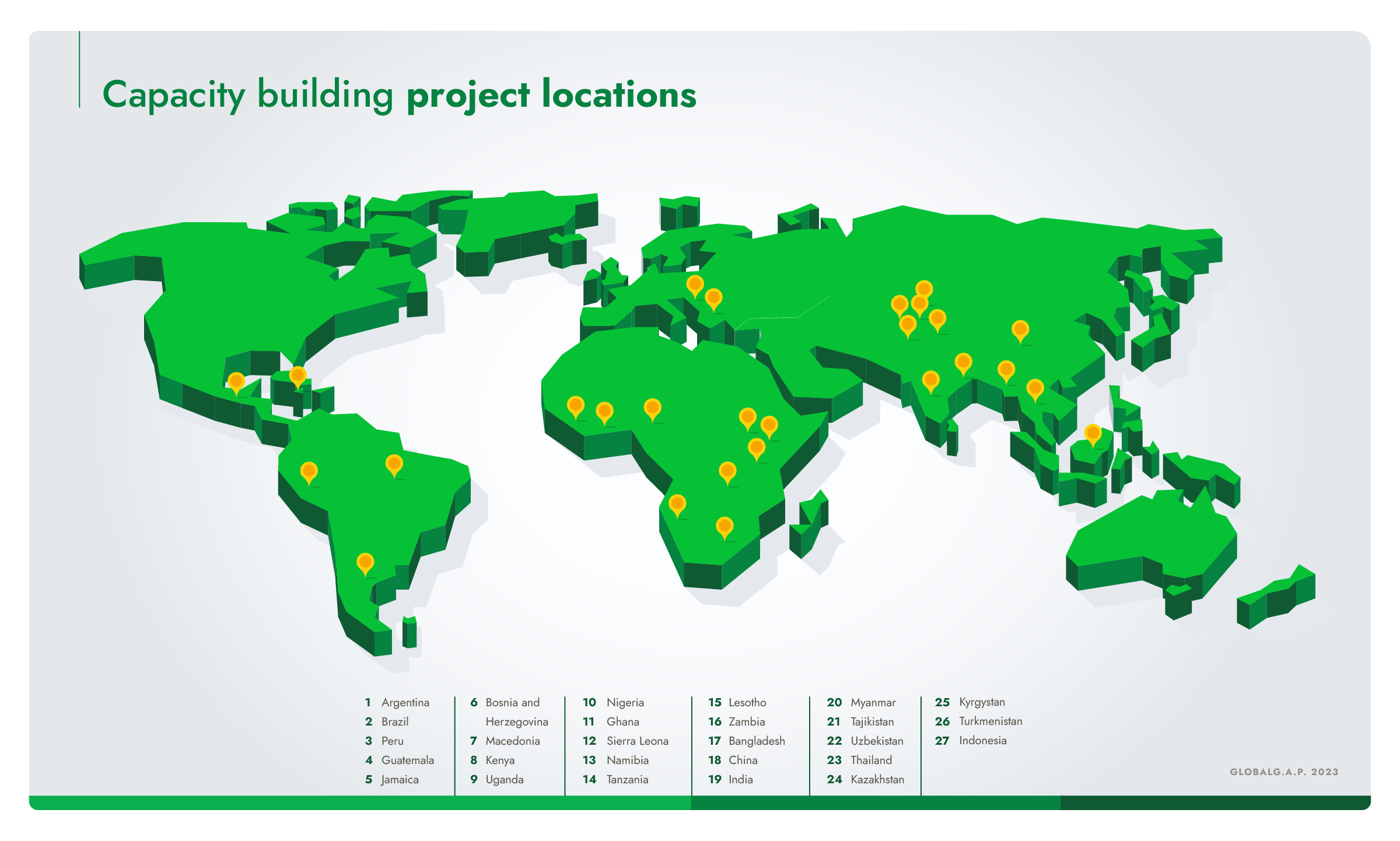
One recent example of such a project can be demonstrated in Namibia. The Namibia project, in partnership with the Namibian Agronomic Board (NAB), aims to strengthen the country’s agricultural sector by helping farmers meet international food safety and quality standards. Focusing on localg.a.p. Primary Farm Assurance (PFA) and GLOBALG.A.P. Integrated Farm Assurance (IFA), the initiative enhances Namibia’s food control system, improving the safety, sustainability, and market competitiveness of local produce. It provides specialized training for NAB inspectors and registered trainers while offering financial and technical support to trainers for long-term impact. Additionally, a national technical working group will develop a National Interpretation Guideline to provide clear guidelines for applying global standards in the Namibian context. The project runs until 2026.
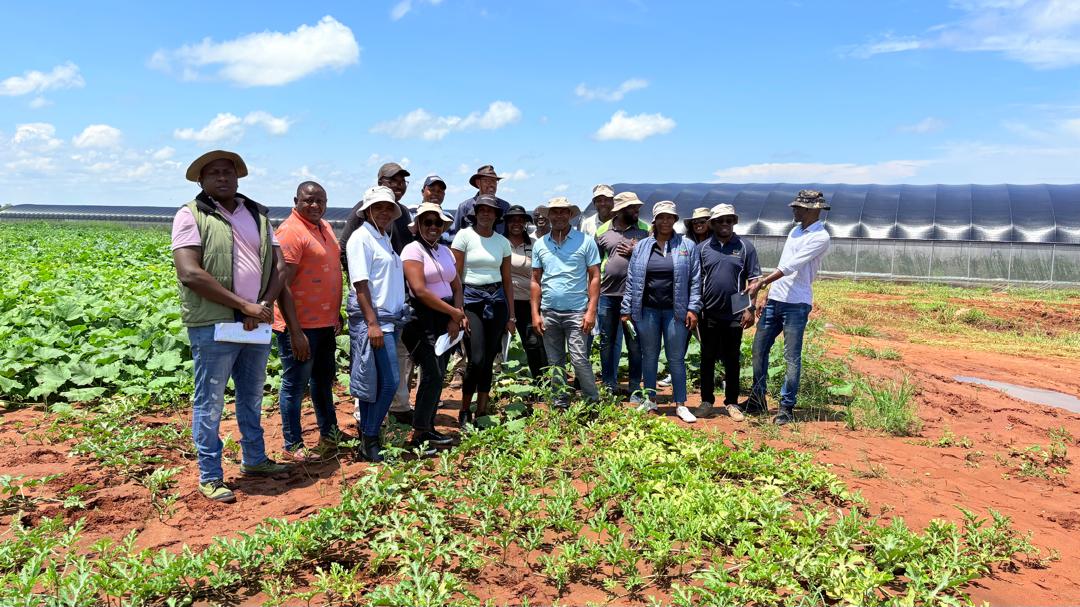
A group of farmers and trainers in Namibia participating in capacity building training, 2025
GLOBALG.A.P. TOUR stops
Each year, GLOBALG.A.P. embarks on TOUR stops to visit different locations and examine the localization of our solutions on the ground. Through this valuable region-specific platform, participants learn about the benefits of certification, share expertise, expand trade networks, and discuss the latest industry trends and challenges. In 2024 we visited Paarl, South Africa.
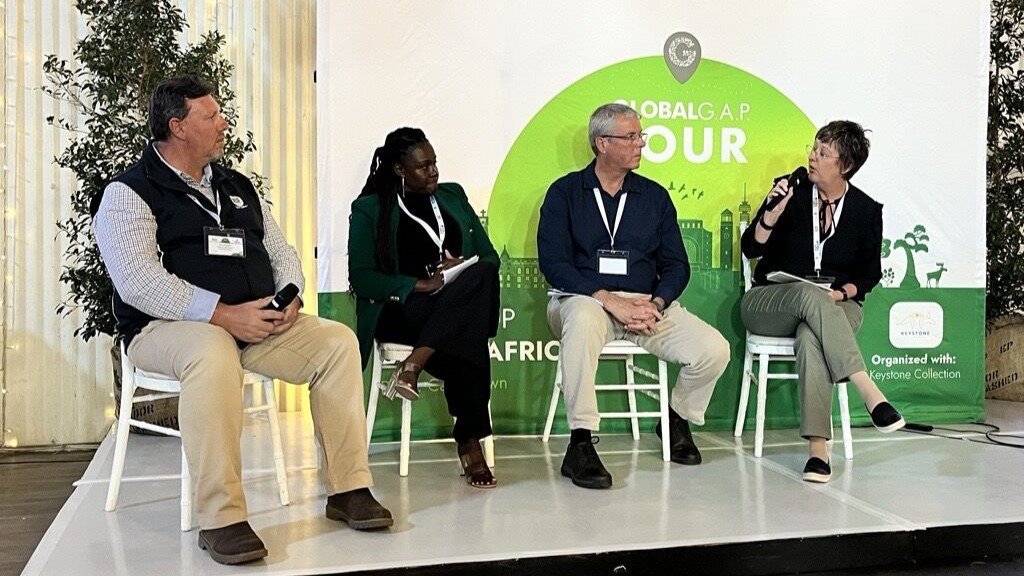
GLOBALG.A.P. TOUR stop in Paarl, South Africa, 2024
New TOUR stops for 2025 are to be announced soon – Stay tuned for updates!
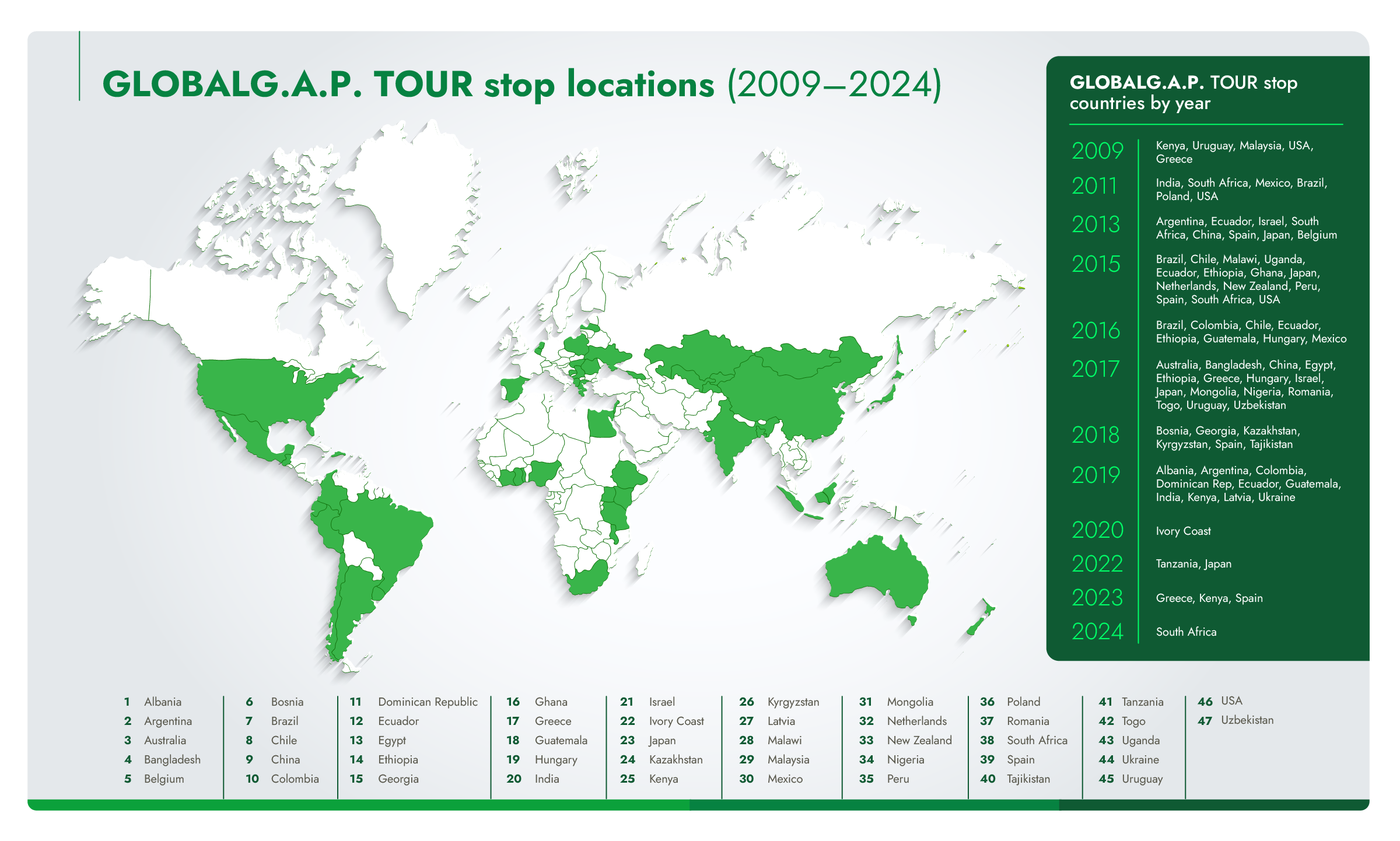
Portfolio of primary solutions
Providing a basic level of assurance, our primary solutions offer a gateway to the GLOBALG.A.P. certification system. Our main primary solution is Primary Farm Assurance (PFA). Centered on a stepwise approach that promotes gradual progression to full Integrated Farm Assurance (IFA) certification, the PFA program aims to support small-scale producers in improving farm management at their own pace. This includes reducing food safety risks, gaining proof of implementation efforts towards responsible farming practices, and demonstrating compliance with food safety legislation to increase access to local and regional markets. Producers can start at the lowest level and progress to higher levels when ready.
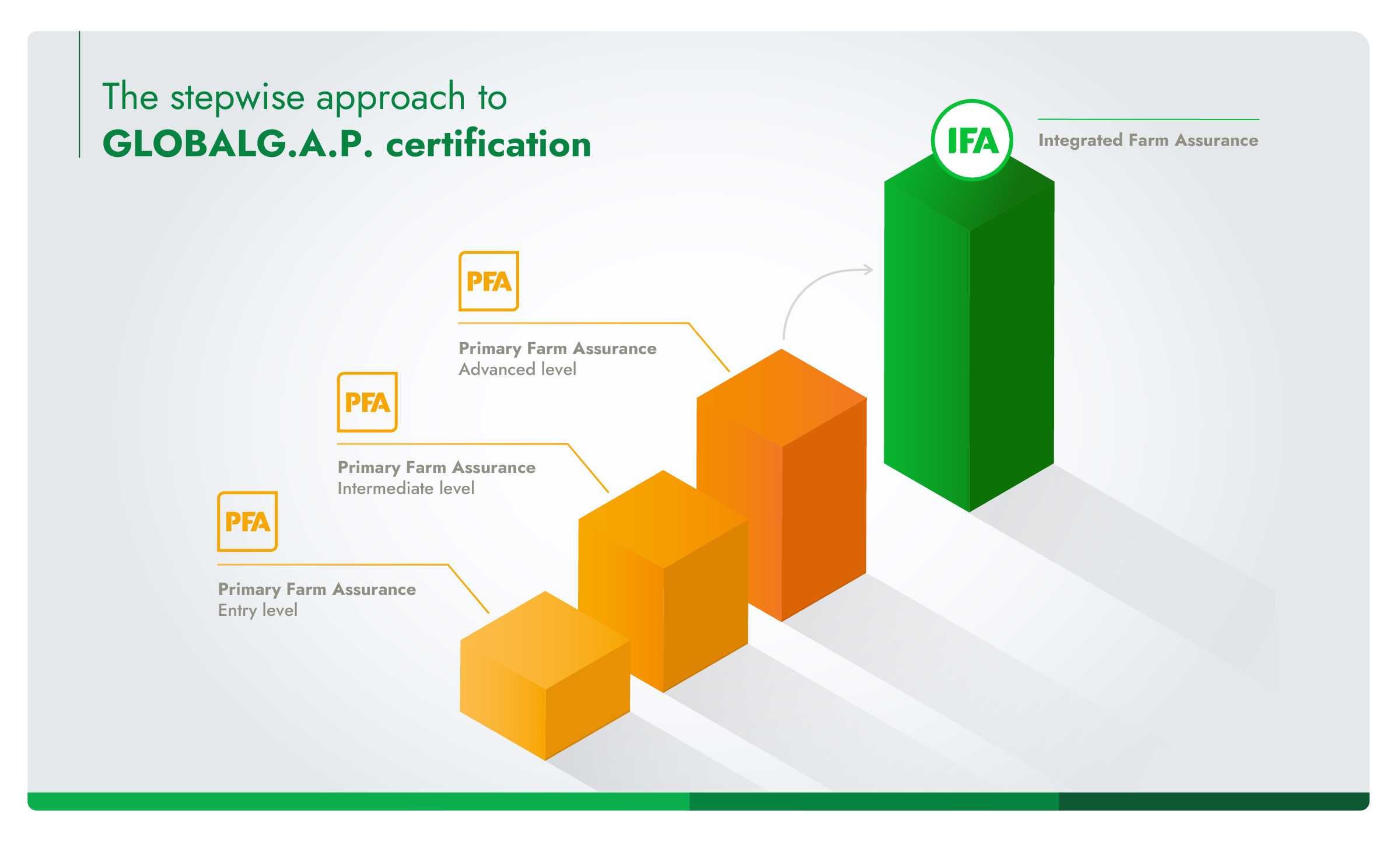
Useful links and contacts
Explore public courses from the GLOBALG.A.P. Academy. Not sure which training course fits your needs? Contact us for more information at academy@globalgap.org.
If your organization is interested in collaborating with GLOBALG.A.P. on a capacity-building project, please contact our project partnership team via partnerships@globalgap.org.
For questions about GLOBALG.A.P. TOUR stops, please contact us at tour@globalgap.org.
Visit our webpage to learn more about Primary Farm Assurance.
